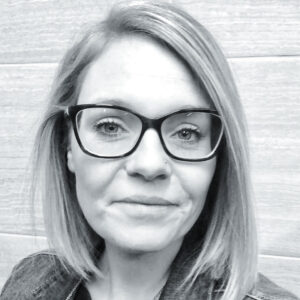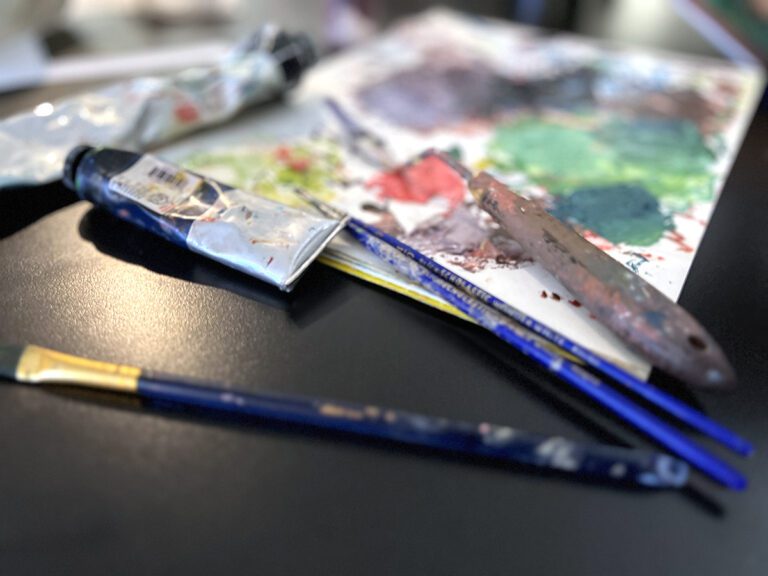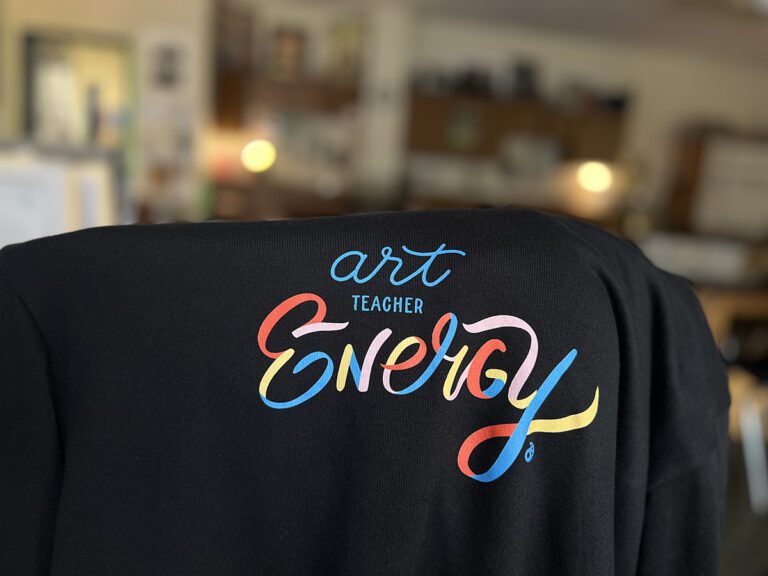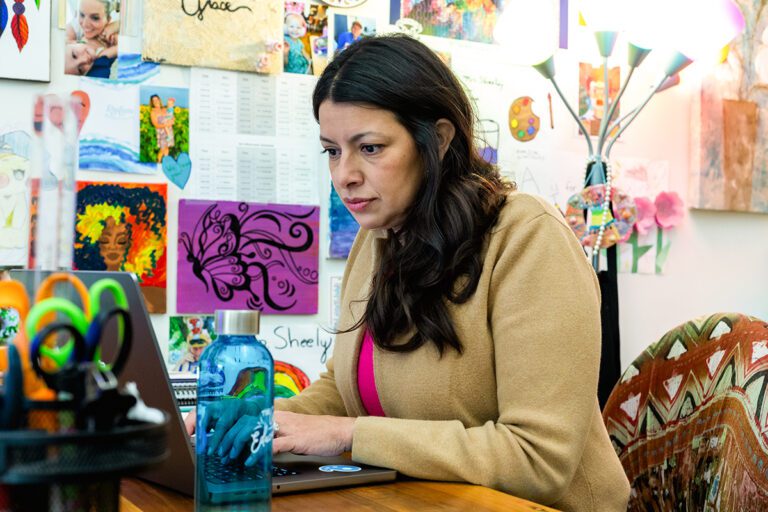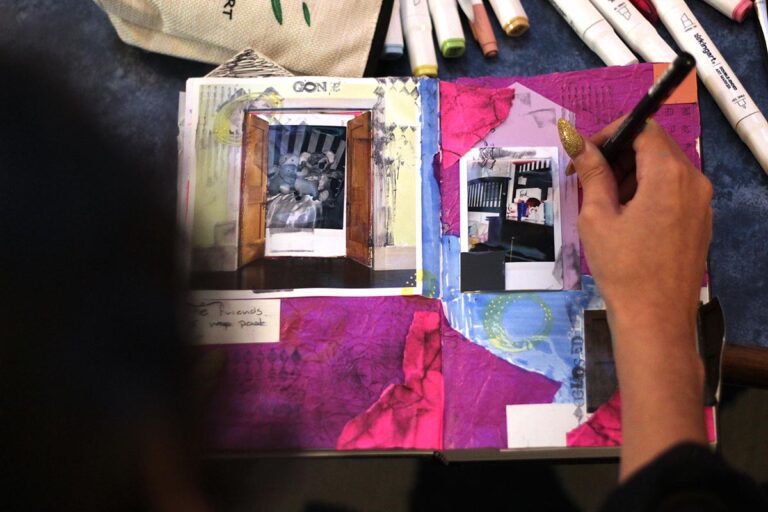My Middle School students are allowed to quietly talk to their table mates while they work. They are allowed to move around the room when they need a supply. They are allowed to stand while they work. There is a lot of flexibility when it comes to creating art.
Talking about art and problem solving with other students is an important part of art class. I encourage students to help and teach one another. We all know that the more we teach something, the more we remember it.
However, many students struggle with listening to directions, too! They are constantly asking me the same questions over and over. Often the questions they ask me are questions that their peers could answer, a simple question that I’ve answered multiple times. Since I’m so often busy moving from table to table helping students (I am only one person!), I ask students to seek the advice of their peers for common art room questions.
I tell students to “Ask 3, Ask Me.”
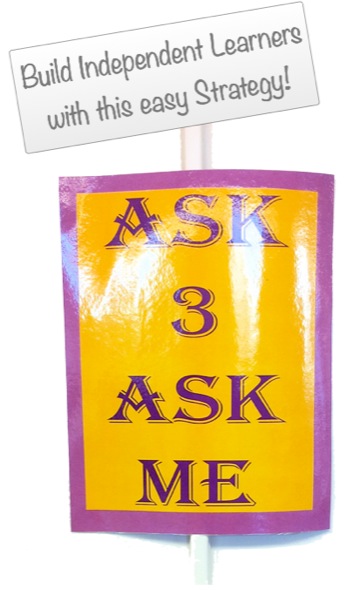 I suggest students ask their question to three other people at their table, if all three students don’t know the answer, then they should ask me. This tells me that at least four of my students don’t know the answer to a question, which means I need to reteach it.
I suggest students ask their question to three other people at their table, if all three students don’t know the answer, then they should ask me. This tells me that at least four of my students don’t know the answer to a question, which means I need to reteach it.
At that point, I stop, and tell the whole class what the question was, and what the answer is. I would say something like, “John asked me a really good question. He asked me what do I do when I’m done printing my 2nd print. I want to remind you that you need to carefully wash off the ink, dry your printing block, and reprint it using the darkest color.”
I keep posters around my room to remind them to ask their peers for help.
Using the Ask 3, Ask Me strategy helps me devote my attention to the students who need my help and allows students to work together to problem solve.
What strategies do you use in your classroom to help students work more independently?
Any other fun sayings like “Ask 3 Ask Me” to help your room run more smoothly?
Magazine articles and podcasts are opinions of professional education contributors and do not necessarily represent the position of the Art of Education University (AOEU) or its academic offerings. Contributors use terms in the way they are most often talked about in the scope of their educational experiences.
